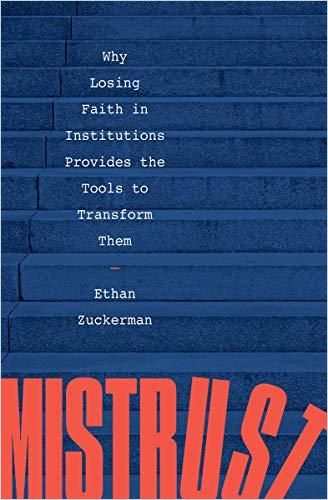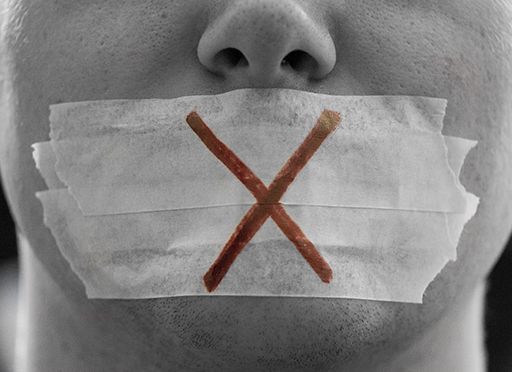Activist Ethan Zuckerman discusses the erosion of trust in American institutions and urges activists to bring about positive change.

Advocating for Change that Can Restore Trust
Internet activist Ethan Zuckerman – who teaches media sciences at MIT and directs its Center for Civic Media – presents Americans’ mistrust of politics, government, the press and other entities as a loss of faith that has worsened since the mid-1960s. Whatever their politics, most Americans no longer believe in their elected officials or institutions, a stance that threatens democracy, Zuckerman says. He points to activism that leverages software code, the law, social pressure and the marketplace to force change and rebuild trust. Jaded citizens as well as aspiring activists will find this a hopeful text.
The New York Times called this “a kaleidoscopic tour” of people resisting the breakdown in social trust. Publishers Weekly said, “Readers hoping [for] a sea change in American politics will be galvanized by this optimistic account.”
Insurrection
A healthy distrust of leaders and government, Zuckerman begins, helped produce the United States’ system of governance, featuring a constitution that adapts as society changes. Of late, he laments, extreme political partisanship and a loss of faith in the presidency, Congress and press are testing the limits and efficacy of US democracy.
When systems won’t respond to attempts at change, that’s the time to look for new tactics.Ethan Zuckerman
Zuckerman credits the loss of faith in institutions to populist movements worldwide and to Donald Trump’s election. He concedes that living standards have risen in nations with autocratic governments, whose leaders enjoy greater trust from their citizens than leaders of democracies do. He states the dilemma simply: When democracy and its institutions fail at the fundamentals, people lose trust.
Antipolitics
Zuckerman cites President Ronald Reagan declaring that economic problems stemmed from government itself. Tea Party members in the early 2000s, Zuckerman notes, ran on antigovernment platforms.
He argues that mistrust makes populations less wealthy, healthy and happy, and more prone to insurrection. Trust, he claims, makes society work better and without the cost and burden of verification systems, protection money and intermediaries.
Americans didn’t lose trust only in the federal government. We lost trust in institutions of all sorts.Ethan Zuckerman
Zuckerman respects the citizen groups that step up when institutions fail. He offers the example in Brazil – following its president’s denial of the existence of COVID-19 – of gang leaders in dense slums imposing curfews and urging residents to wear masks and maintain social distance.
Many Americans, whom Zuckerman tags as “institutionalists,” retain faith in the police, courts, Congress, media, public schools, medical system, and so on. Zuckerman’s “insurrectionists,” however, feel they cannot change broken systems through voting or activism, and so they seek recourse elsewhere.
We hope that institutions continue to function even when leadership is weak or incompetent, but the price for this resilience is inflexibility.Ethan Zuckerman
Zuckerman characterizes Trump, unlike many insurrectionists, as lacking interest in rebuilding or replacing existing systems; he simply wanted to tear them down.
Four Levers
Zuckerman describes how today’s pressure groups, cynical about government and the law, are leveraging activist Lawrence Lessig’s four drivers of change: software code, markets, the law and norms. Zuckerman says Lessig believes code can shape people’s behavior, as the law does. Lessig also, the author notes, describes norms and markets as tools for transformation. Quick and relatively low-effort social media campaigns, for example, have galvanized widespread change.
[Elon] Musk is not a conventional CEO – he’s an activist masquerading as a CEO to use the full power of the market lever to make change.Ethan Zuckerman
Zuckerman makes a strong argument for these levers using Elon Musk and Tesla as his multilayered examples. By building electric cars that work, Zuckerman says, Musk used the market lever to make every automaker that wants to survive embrace electric vehicles.
The key ingredient in contemporary social change is efficacy: the sense that you, personally, can have an impact on the world.Ethan Zuckerman
Zuckerman lists how Tesla used code in its vehicles to influence environmentally friendly behaviors and how it leveraged markets to create economies of scale that cut the costs of electric cars, solar panels and storage batteries. Zuckerman reminds readers that Tesla shaped the law by petitioning governments to provide tax and other incentives for adopters of electric cars and solar energy. The author argues that when you see your neighbors installing solar panels, you may feel pressure to do the same; thus, Tesla benefits from altered norms.
Internet and Social Media
Organizers today, Zuckerman grudgingly accepts, can gather signatures for petitions or raise millions of dollars entirely online.
The idea that people can transform the world for the better is one of the most powerful motivators imaginable.Ethan Zuckerman
Wise organizers will, he urges, encourage in-person activism while offering online engagement as well. Zuckerman believes that, when organizers channel people’s mistrust into action using Lessig’s four levers, institutions and systems change, which restores trust.
Complex
Zuckerman is a complex thinker who raises complex issues. He is fanatically pro-democracy in the American model and makes no secret of his anger and contempt for those who would undermine it. Here, Zuckerman posits Trump as the exemplar of that undermining. How much you engage with Zuckerman’s quite interesting and singular theses will depend entirely on how much you support or loathe Trump. Echoing the very divide he despises, Zuckerman never occupies a middle ground. At the same time, he is both idealistic and practical about US institutions – government, law, media, community – and couches his arguments as methods for preserving trust in these institutions and thus protecting American democracy. This is a passionate, articulate and at times self-contradictory work that will lead you to serious contemplation of all the issues Zuckerman raises. After all, he is an activist, and he wants to inspire activism in you.
Ethan Zuckerman also wrote Digital Cosmopolitans: Why We Think the Internet Connects Us, Why It Doesn’t and How to Rewire It. Other worthwhile books relating to public and private trust include Trust by Francis Fukuyama, High Conflict by Amanda Ripley and The Upswing by Robert D. Putnam.













